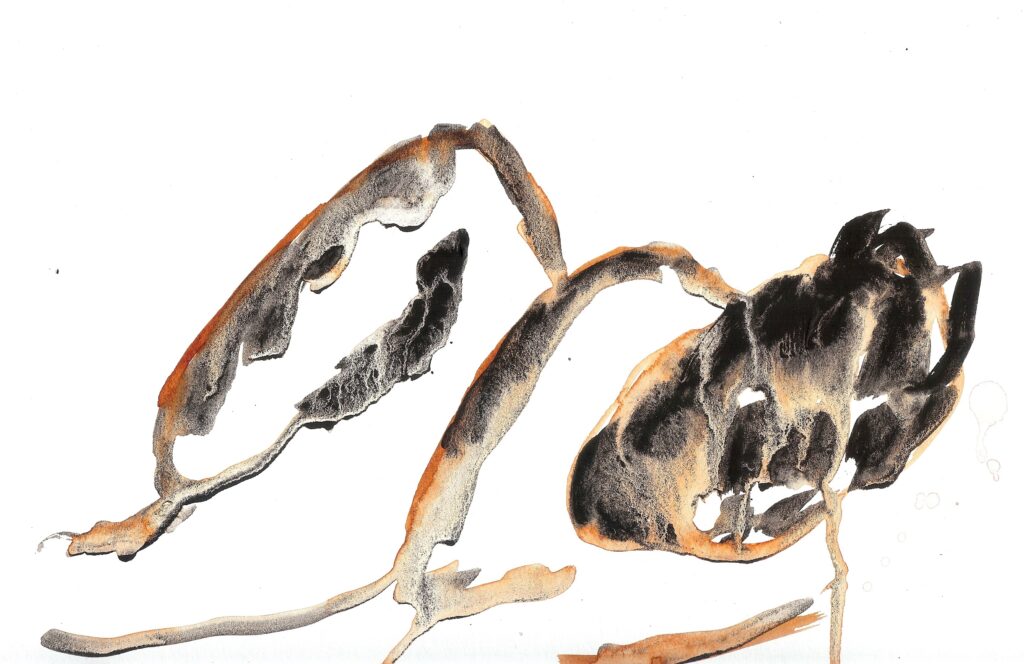Nine Perfect Strangers, the new Hulu series directed by Jonathan Levine, has its flaws. Nothing much happens, but perhaps that’s the point. And despite nothing much happening, I found myself riveted, wasting away a lazy Sunday afternoon intrigued by all three episodes. Nine Perfect Strangers is based on a book by the same name by Liane Moriarty. I don’t know if I’ll keep watching the Hulu show, but I sure as hell will be reding the Nine Perfect Strangers book. Subtletly is lost in television, and I’m curious to see what has been lost in translation from the book.
The nine perfect strangers who arrive at the wellness retreat (called Tranquillum) are there to escape from their pain, high-pressure jobs, and addictions, but Masha, the guru and resort founder, played fabulously by Nicole Kidman, is not ready to let them get off so easily.
We are introduced to the cast of characters in the opening episode. Through clever plot sleight of hand, we find that the nine perfect strangers are more diverse a crowd than one would expect to find at a pricey wellness retreat. A middle class family has been given a substantial discount. They are mourning the suicide of their teenage son. An influencer couple with trouble in their marriage tries to have sex in the resort’s various romantic settings, but they fall short of their goal. We later learn that the husband who drives a Lamborghini won the lottery. A former football star turned pain killer addict, is permitted to indulge in his addictions (unorthodox for a retreat to encourage addicitve behavior), but he finds that the pills mysteriously don’t work for him on the resort. A famous writer who can’t sell her next bestseller encounters enough material for ten books while hanging out at the pool, the breakfast table, and the hot spring, but can’t bring herself to write down a single thing—though she admits to considering the psychodramas between the people at the resort good “material.” Another man, who may or may not be a journalist or spy is an asshole to everyone, while simultaneously seeming to be the only person capable of exhibiting real emotions (in the opening episode, we see him trying to make up with his ex, and showing real vulnerability).
While watching the show, I kept wanting Nicole Kidman, who plays the role of the director of the expensive wellness center on which the show is set, to levitate, or invoke ghosts, or murder someone. I expected something to happen, anything. There’s a visually striking scene where Kidman strokes a hauntingly beautiful goat with yellow eyes, and another where she stands at a rugged cliff’s edge overlooking the sea, seemingly about to fall or fly. Yet, nothing much happens on Kidman’s expensive and luxuriously-appointed resort, and perhaps that’s the point. She may or may not have given her guests micro-doses of illegal psilocybin, but everything that seems to happen doesn’t involve transcending space or time. Perhaps that’s the dissappointing outcome of all wellness retreats. They may promise to exorcize demons or leave you feeling or looking younger, but they can’t turn back time or undo the ravages of mortality, death, and violence.
Instead of retreating, the nine perfect strangers are forced to suffer through a series of wellness treatments (which are, of course, based on real-life wellness treatments; the ways that people are willing to torture themselves are manifold). Guests are given smoothies specially tailored to their metabolism, they fast, are invited to dig their own graves and lie in them, are taken to a garden to forage for their own food, are taught to meditate, are invited to take “forest baths,” and indulge in pool time, hot springs, and acupuncture, but they don’t seem to understand the real treatment, which ultimately has nothing to do with any of the more familiar treatments on offer.
Wellness retreats have become another mode of consumption in American culture, places where the wealthy go to retreat from the scourge of everyday life by blatantly avoiding those scourges. There are digital detox retreats that take away your digital devices and retreats to detox from drugs. There are retreats for yoga and for ayahuasca. What’s fascinating about the retreat in Nine Perfect Strangers is the fact that Masha, the guru and guide, won’t let her guests avoid their pain.

Yes, they have to turn over their cell phones and drugs, and yes, they are forced to endure more and more ridiculous wellness rituals as the show progresses. But slowly, Masha, guides each guest towards encountering their demons and their worst fears. The family who has lost a son is forced to face the stark reality of their son’s suicide, and come to terms with their own buried self-blame. The addicted football player is forced to face the limitations of his own self-medication when his drugs stop working. The social media influencer, coming to rekindle the sexual spark in her marriage is pushed into more uncomfortable psychic terrain by Masha, who asks her to consider instead why her husband doesn’t love her anymore.
People go to wellness retreats to feel “well,” but the twist in Nine Perfect Strangers is that maybe we don’t feel uncomfortable enough. The path to healing is perhaps not the alleviation of pain, but the embracing of it, and what it has to teach us.
I don’t have patience for the weekly trickle of episodic television, so I’ll be reading the Nine Perfect Strangers book to get my answers about how the show turns out. Either way, I’m not here to offer spoilers. But it’s pretty clear that things aren’t going to end well. People unprepared to confront their own pain are unlikely to confront it well.
Nine Perfect Strangers by Liane Moriarty at Amazon.com (affiliate link)
Nine Perfect Strangers by Liane Moriarty at Bookshop.org (affiliate link)
About the Writer
Janice Greenwood is a writer, surfer, and poet. She holds an M.F.A. in poetry and creative writing from Columbia University.
